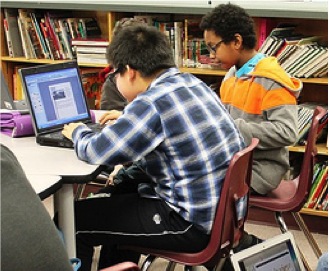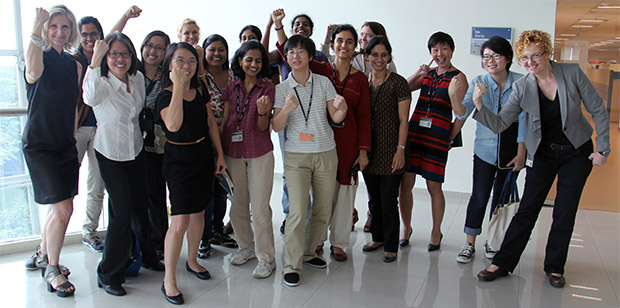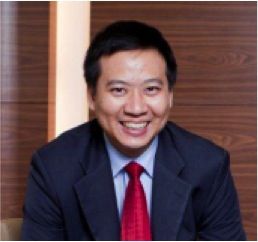By Vivienne Wee And Edwina Shaddick
Singaporeans increasingly want to be heard. An increasingly vocal population is far from antagonistic to good governance. This is especially so if the rising volume of voices is accompanied by an increasing awareness of the issues.
Increased participation, coupled with the Government’s willingness to engage, would enable more Singaporeans to feel that they have a stake in this country. But this can only happen if governmental processes are structured and communicated in a way which helps citizens to give useful feedback.
 Consider the Budget. On Feb 21, Minister for Finance Tharman Shanmugaratnam will announce the Government’s proposed Budget for the fiscal year to come. Singaporeans can express their views through online platform Reach until Jan 29.
Consider the Budget. On Feb 21, Minister for Finance Tharman Shanmugaratnam will announce the Government’s proposed Budget for the fiscal year to come. Singaporeans can express their views through online platform Reach until Jan 29.
But are Singaporeans able to offer valuable feedback through this process?
As an advocacy group, the Association of Women for Action and Research (Aware) has been submitting recommendations for the Budget since 2011, usually through Reach. The period for consultation on the Budget opened on Nov 22 last year and closes on Jan 29.
A Budget cycle described on the Civil Service College website suggests that the Cabinet approves a consolidated Budget in late January. How feasible is it for a Budget approved in late January, and made public on Feb 21, to take into account views from public consultation that ends on Jan 29?
Consultation that takes place earlier and ends later will allow more of the public’s inputs to be meaningfully absorbed into the Budget.
A look at the International Budget Partnership (IBP), an advocacy group partly funded by the Ford Foundation that promotes open budgeting by governments, shows Singapore lags behind global best practices in budget processes.
The IBP’s Open Budget Index tracks 125 countries but not Singapore, for reasons we are unaware of.
The Open Budget Index, conducted once every two years, ranks countries on budget transparency, based on “whether the government provides the public with timely access to comprehensive information contained in eight key documents”. Singapore does not comply with some of these practices.
For example,the Organisation for Economic Cooperation and Development (OECD) recommends that governments release a pre-budget statement at least a month before the budget is introduced to the legislature for debate, including projections of revenue, expenditure and policy goals, to give time for informed analysis and critique.
New Zealand meets this standard, as does South Africa, which releases this data four months before its budget. However, no such publication is expected in Singapore at any time before public consultation ends on Jan 29.
Furthermore, the Government can afford to provide more information about its expenditure.
In March 2010, opposition MP Low Thia Khiang said in Parliament that he used to be able to view specific details of how ministries spent their money in the Budget Book. But this was no longer the case as the figures had been consolidated. Mr Low argued that the consolidated figures were not helpful aids to understand a ministry’s programmes, nor the changes in its expenditure. Then Second Minister for Finance Lim Hwee Hua stated that specific expenditure breakdowns can be found in the Expenditure Control Document available in the Parliament Library.
That may be so, but as this library can only be accessed by legislators and their assistants. What about citizens and civil society organisations interested in taking a more active part in the Budget process?
To be sure, some information may be deemed too sensitive for the public on security grounds, but more detailed discussion is needed to determine what falls within that category.
The Budget and its formulation process can be powerful tools of engagement for the public. The Budget governs how much citizens pay for the upkeep of government, and how much they receive in return.
Dr Noeleen Heyzer, a Singaporean who is undersecretary-general at the United Nations, describes budgeting as “no longer… an exclusive exercise” reserved only for ministries of finance, but rather “a process that entails aligning national development plans and goals and human rights commitments with budget policies in a transparent and coherent manner”.
Budget formulation, Dr Heyzer argues, determines “people’s access to services and resources” and so “discrimination can either be reinforced or eliminated by budget policies”.
To be fair to the Ministry of Finance, it does consult the public pre-Budget, judging from its website and the Reach portal inviting views. But Singapore can move beyond a “wish list” style of consultation, in which the public states vague aspirations and the Ministry of Finance responds by enumerating policies already in place or new ones in the pipeline that meet those aspirations.
A more sophisticated engagement requires public access to information on the past performance of individual policies and programmes.
IBP best practices for example recommend year-end and in-year reviews of spending on programmes.
Also recommended is a “Citizen’s Budget” – the Budget statement presented in an easy-to-understand manner for the public with a breakdown of allocations to achieve specific outputs and outcomes.
These are all ideas Singapore can look into.
Earlier and better-quality information on the Budget process can give citizens a greater stake in the nation and increase their sense of ownership and participation.
As stated by the Auditor-General’s Office in its 2011 publication Public Accountability, “The citizens of Singapore are the ultimate owners of our nation’s financial resources. It is important that they understand and support the processes and systems that ensure public accountability.”
Dr Vivienne Wee, a sociology lecturer, is research and advocacy director at the Association of Women for Action and Research (Aware). Edwina Shaddick, a teacher in a private school, is a member of its Budget sub-committee.
This article was published in the Straits Times on 24 January 2014.
 Today is Safer Internet Day. While the Government is planning new legislation this year to address harassment, it is essential to remember that online harassment often specifically targets women and girls.
Today is Safer Internet Day. While the Government is planning new legislation this year to address harassment, it is essential to remember that online harassment often specifically targets women and girls.



 On 29 January, AWARE submitted its fourth annual set of recommendations for the national budget through the public consultation portal REACH. This year we question some of the fundamental approaches that underlie budget making and call for the budget process to be more transparent and inclusive, so that citizens and civil society organisations can have a greater stake in an inclusive nation. Our recommendations have also been sent to Members and Nominated Members of Parliament.
On 29 January, AWARE submitted its fourth annual set of recommendations for the national budget through the public consultation portal REACH. This year we question some of the fundamental approaches that underlie budget making and call for the budget process to be more transparent and inclusive, so that citizens and civil society organisations can have a greater stake in an inclusive nation. Our recommendations have also been sent to Members and Nominated Members of Parliament. The publication of factual, non-judgmental information about homosexuality and bisexuality falls squarely within this mission. The World Health Organisation (WHO) and the United Nations Committee on Economic, Social and Cultural Rights identify access to health-related information, including sexual health, as a crucial part of access to health care.
The publication of factual, non-judgmental information about homosexuality and bisexuality falls squarely within this mission. The World Health Organisation (WHO) and the United Nations Committee on Economic, Social and Cultural Rights identify access to health-related information, including sexual health, as a crucial part of access to health care.






 Dr. Jeremy Lim is the author of ‘Myth or Magic: The Singapore Healthcare System’. A medical doctor by training, he is a partner with a global consulting firm and has previously held senior level appointments in the public and private sectors in Singapore. He is a regular commentator on health policy whose writings feature regularly in the Straits Times and TODAY.
Dr. Jeremy Lim is the author of ‘Myth or Magic: The Singapore Healthcare System’. A medical doctor by training, he is a partner with a global consulting firm and has previously held senior level appointments in the public and private sectors in Singapore. He is a regular commentator on health policy whose writings feature regularly in the Straits Times and TODAY.